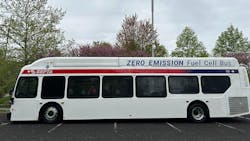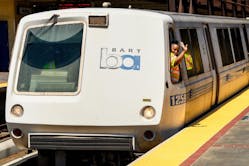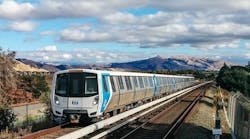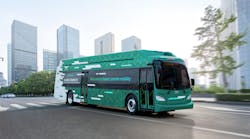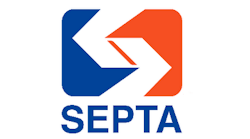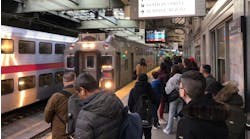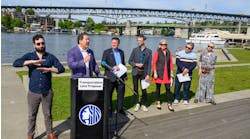The Southeastern Pennsylvania Transportation Authority (SEPTA) and Bay Area Rapid Transit (BART) have retired long-time transit vehicles in their respective fleets.
SEPTA
SEPTA has retired its last bus fully powered by diesel fuel, reinforcing the authority’s commitment to the environment and a sustainable public transportation system. With the retirement of diesel buses, the authority transitions to a fleet comprised entirely of state-of-the-art electric and hybrid models. The significant milestone marks a decisive step towards a zero-emission future.
“We are thrilled to announce the retirement of our last diesel bus, marking a historic moment for SEPTA and the communities we serve,” said Leslie S. Richards, SEPTA CEO and general manager. “This transition underscores our dedication to sustainability and aligns with our mission of connecting people with opportunity, catalyzing the economy and sustaining our environment.”
SEPTA’s fleet of 1,379 buses and trackless trolley buses are now either electric or hybrid electric and offer increased energy efficiency and lower maintenance costs compared to traditional diesel counterparts. The vehicles are equipped with advanced features such as regenerative braking and onboard energy storage systems.
“The move to a 100 percent electric and hybrid fleet not only benefits the environment, but also enhances the overall passenger experience with quieter, smoother rides and reduced vibration,” said Emily Yates, SEPTA’s chief innovation officer.
SEPTA has released its third generation SEPTA Sustainability Playbook, which aims to build on prior successes and achieve ambitious targets by 2030.
Highlights include:
- Transitioning both revenue and non-revenue fleet vehicles to zero-emissions.
- Developing a Climate Resiliency and Adaptation Playbook to identify systems susceptible to the effects of climate change and adaptation measures to mitigate risks.
- Developing a Stormwater Master Planto address environmental protection, water quality, flood prevention, erosion control and resilience to climate change
The Sustainability Playbook builds on the SEP-TAINABLE 2020 plan and provides a new seven-year plan to maximize sustainability impact on our business practices, systems, equipment and facilities.
BART
BART retired its legacy fleet on April 20. BART’s legacy vehicles will be replaced by its Fleet of the Future. BART’s legacy trains served the agency for 51 years.
To celebrate the end of an era, BART hosted a party at the MacArthur Station plaza. The event included a celebration in the station plaza, a retirement ceremony and a final journey aboard three legacy trains.
The party in the plaza was followed by a ceremony opened by BART Board President Bevan Dufty and including remarks by BART General Manager Bob Powers, Federal Transit Administration Region 9 Regional Administrator Ray Tellis and BART Chief of Police Kevin Franklin. There were also representatives from groups who will receive legacy cars after successfully submitting proposals to repurpose the vehicles, including:
- Western Railway Museum, which is establishing a Rapid Transit History Center that will include three legacy BART cars
- Sierra Train House, a forthcoming residence and short-term rental in the Sierra Foothills constructed from a BART car
- Original Scraper Bike Team, who will use a car for a bike shop, providing free repairs and bike repair lessons to local youth, as well as a clubhouse for community events and the organization's mentorship program.
The final trip ran from MacArthur to Fremont Station – the reverse of BART’s inaugural run in 1972. After the trains reached Fremont, they came to rest at BART’s Hayward Yard.
